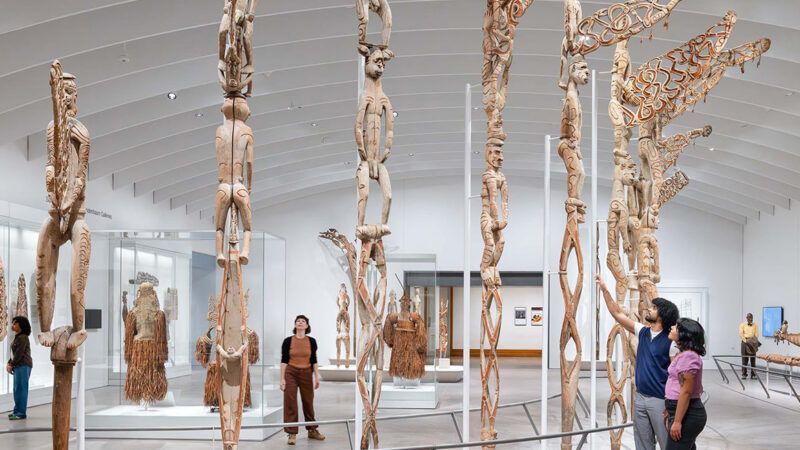Review: The Historical Art You've Probably Never Seen
A newly renovated wing at the Met showcases culture and history from Africa, the Americas, and Oceania.

When the 20th century anthropologist Bronisław Malinowski wanted to debate economics, he went to the most remote islands he could find. His 1922 book, Argonauts of the Western Pacific, demonstrates that "primitive" economies were far more elaborate than either Adam Smith or Karl Marx imagined. The world he saw is on display in New York City at the Michael C. Rockefeller Wing of the Metropolitan Museum of Art, recently reopened after a $70 million renovation and reorganization.
The wing—also called The Arts of Africa, the Ancient Americas, and Oceania—seems at first like a random grab bag of societies. Founded as the Museum of Primitive Art, it contains pretty much every culture that doesn't fit within the conventional European, East Asian, and Middle Eastern lineages of art history. The outsider history is exactly what makes the exhibit so interesting, as it helps us see and understand that people created sophisticated cultures and beautiful art while living outside world empires and state bureaucracies.
The exhibit does not shy away from some of the unpleasant aspects of these non-Western cultures. The Aztec, Inca, Kongo, and Benin states were in fact conquering empires. (The Bamana people, whose name means "unbelievers," are so named because they rejected the Muslim emperor of Mali.) The Dahomey Kingdom grew rich selling captives to European slavers; some returning slaves founded the Republic of Liberia, which in turn tried to suppress other African cultures.
But this wing is focused much less on the exploits of kings or presidents than the rest of the Met is. Much of the art was made by and for ordinary people living ordinary lives. There are intricate utensils, masks, jewelry pieces, religious devotional objects, and alcohol vessels imbued with the personalities of the nameless people who made them. People have always been creative, even without a government grant or royal commission.
